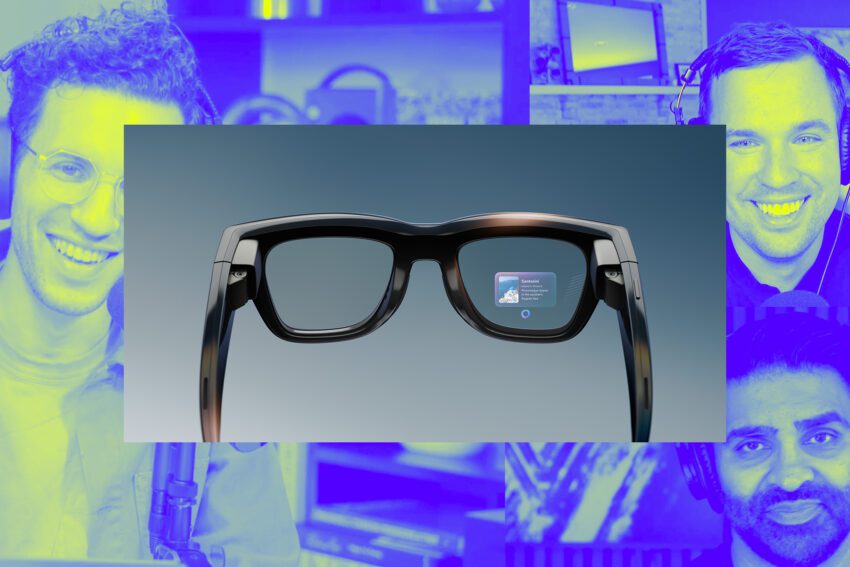
meta s quest to own your face Meta is making significant strides in the development of smart glasses, positioning itself as a leader in a competitive landscape that includes major tech players like Google, Apple, and Samsung.
meta s quest to own your face
The Rise of Smart Glasses
Smart glasses have been a topic of interest in the tech industry for several years, with various companies exploring their potential. The concept of wearable technology that integrates seamlessly with daily life has captivated both consumers and developers. Meta, formerly known as Facebook, has emerged as a significant player in this space, launching products that combine augmented reality (AR) with practical functionalities.
Meta’s Vision for Smart Glasses
Meta’s approach to smart glasses is rooted in its broader vision of the metaverse, a virtual environment where users can interact with digital content in real time. The company believes that smart glasses will serve as a gateway to this immersive experience, allowing users to access information, communicate, and engage with their surroundings in new ways.
In collaboration with Ray-Ban, Meta has introduced the Ray-Ban Stories, a pair of smart glasses that incorporate features such as built-in cameras, speakers, and voice assistants. These glasses allow users to capture photos and videos, listen to music, and make phone calls, all while maintaining a stylish appearance. This blend of functionality and fashion is a critical aspect of Meta’s strategy, as it seeks to make smart glasses appealing to a broad audience.
Competitive Landscape
Meta is not alone in its pursuit of smart glasses. Other tech giants are also investing heavily in this technology, each with its unique approach and vision. Google, for instance, has been experimenting with smart glasses for years, initially launching Google Glass in 2013. Although the product faced criticism for its design and functionality, Google has continued to refine its offerings, focusing on enterprise applications and augmented reality features.
Apple, known for its innovative products, is rumored to be developing its own version of smart glasses, potentially integrating them with its existing ecosystem of devices. Samsung has also shown interest in wearable technology, exploring various concepts that could lead to a competitive smart glasses product.
Meta’s Current Offerings
The Ray-Ban Stories represent Meta’s first major foray into the smart glasses market. Launched in September 2021, these glasses have garnered attention for their sleek design and practical features. Users can take photos and videos with a simple touch of a button, and the glasses are equipped with speakers that allow for hands-free listening. This functionality is particularly appealing for users who want to stay connected without the need for additional devices.
Key Features of Ray-Ban Stories
- Camera: The glasses feature dual 5MP cameras that allow users to capture high-quality images and videos.
- Audio: Built-in speakers provide a personal listening experience, enabling users to enjoy music or take calls without disturbing those around them.
- Voice Control: Users can utilize voice commands to operate the glasses, making it easier to take photos or access information on the go.
- Design: The collaboration with Ray-Ban ensures that the glasses maintain a fashionable appearance, appealing to style-conscious consumers.
Despite their innovative features, the Ray-Ban Stories have faced criticism regarding privacy concerns. The presence of cameras on the glasses raises questions about surveillance and consent, prompting discussions about the ethical implications of wearable technology. Meta has addressed these concerns by implementing indicators that alert others when the glasses are recording, but skepticism remains among consumers and privacy advocates.
Implications for the Future
Meta’s investment in smart glasses is indicative of a broader trend toward wearable technology that enhances user experience. As the company continues to refine its offerings, the implications for various sectors are significant. From social media to retail, the integration of smart glasses could revolutionize how users interact with digital content and each other.
Impact on Social Interaction
One of the most profound implications of smart glasses is their potential to change social interactions. With the ability to capture and share experiences in real time, users can document their lives in ways that were previously unimaginable. This could lead to a shift in how people communicate, share memories, and engage with one another.
However, this shift also raises concerns about the authenticity of experiences. As users become more focused on capturing moments for social media, there is a risk that genuine interactions may be overshadowed by the desire for digital validation. The challenge for Meta and other companies will be to strike a balance between enhancing communication and preserving the authenticity of human connections.
Potential for Augmented Reality
In addition to transforming social interactions, smart glasses hold the potential to enhance augmented reality experiences. By overlaying digital information onto the physical world, users can access real-time data and insights that enrich their environment. This could have applications in various fields, including education, healthcare, and tourism.
For example, in education, smart glasses could provide students with interactive lessons that blend digital content with physical objects. In healthcare, doctors could use augmented reality to visualize complex data during surgeries, improving outcomes and patient care. The possibilities are vast, and as technology continues to evolve, the applications for smart glasses will likely expand.
Stakeholder Reactions
The introduction of smart glasses has elicited a range of reactions from stakeholders across the tech industry and beyond. While many view Meta’s efforts as a positive step toward innovation, others express concerns about privacy, ethics, and the potential for misuse.
Consumer Sentiment
Consumer reactions to the Ray-Ban Stories have been mixed. Some users appreciate the convenience and functionality of the glasses, while others remain skeptical about privacy implications. The ability to record videos and take photos discreetly raises questions about consent and surveillance, leading to calls for clearer regulations surrounding wearable technology.
Industry Perspectives
Industry experts are closely monitoring Meta’s progress in the smart glasses market. Some analysts believe that the company’s focus on design and user experience could set a new standard for wearable technology. Others caution that the challenges of privacy and ethical considerations could hinder widespread adoption.
Regulatory Considerations
As smart glasses gain popularity, regulatory bodies may need to address the legal and ethical implications of this technology. Issues surrounding data privacy, consent, and surveillance will likely prompt discussions about the need for guidelines and regulations to protect consumers. The outcome of these discussions could shape the future of smart glasses and their integration into everyday life.
Conclusion
Meta’s commitment to developing smart glasses reflects a broader trend toward wearable technology that enhances user experience and interaction. As the company continues to innovate and refine its offerings, the implications for social interaction, augmented reality, and industry standards are significant. While challenges related to privacy and ethics remain, the potential for smart glasses to transform how we engage with the world is undeniable. As Meta and its competitors navigate this evolving landscape, the future of smart glasses will be shaped by technological advancements, consumer sentiment, and regulatory considerations.
Source: Original report
Was this helpful?
Last Modified: September 19, 2025 at 8:39 pm
0 views















